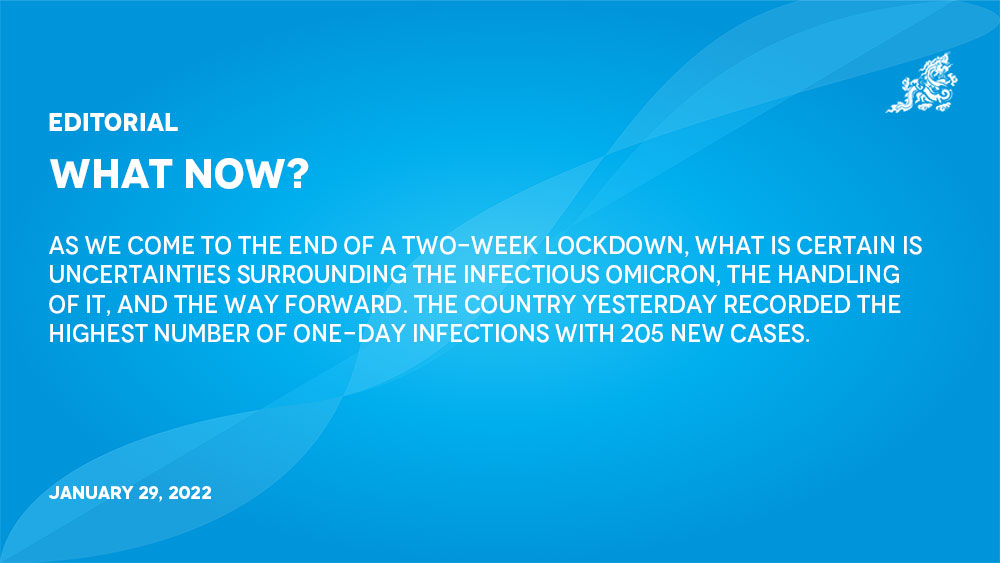As we come to the end of a two-week lockdown, what is certain is uncertainties surrounding the infectious Omicron, the handling of it, and the way forward. The country yesterday recorded the highest number of one-day infections with 205 new cases.
The expectation is that the lockdown will come to an end on January 30, and life will return to normal. What is happening on the ground is a bit different. Omicron, proven to be highly infectious, is breaking records. The on-going mass testing in the capital city will determine whether we can return to normal life.
In spite of efforts to contain the spread of the virus, cases are rising, including in the community. While the majority are from quarantine centres and those working in containment mode, what is called “thekar du drewa”, or primary contacts, testing positive is no consolation. The virus spreads obviously through close contacts and we are not able to stop it.
In the current wave, 1,500 cases were recorded within 14 days. The last lockdown saw only 1,300 in four months. Are we on the way to peak infections? From experiences in other countries, infection rate starts declining after hitting the peak. Hopefully, we will see the same trend.
Aware of what is happening around the world, many are hoping, some even suggesting, that we should relax restrictions and achieve herd immunity through infections. But there are also governments resorting to strict restrictions as the best way out of the pandemic.
A consolation is that the current outbreak is not as serious as the Delta variant. While those tested positive say that the symptoms are mild and boredom is the only problem, we have reported the fourth death from coronavirus.
The death of the young woman comes as a grim reminder of how vulnerable some sections of the population are. We have about 165,000 people who are at risk because of age or not being vaccinated. The vulnerable group needs our protection. They could be our parents or children. Decisions, however, have to be made based on scientific evidence. Some are relaxing restrictions because of pressure from interest groups. The government’s priority is lives over livelihood.
Meanwhile, if the strict restrictions could curb the spread, we have to cooperate. If the means to cope with the lockdown can be improved, people will not complain or feel the impact. For instance, farmers in Wangdue and Punakha are watching their vegetables get over- matured in the garden. Those genuinely stranded need to get home and essentials have to be affordable. Some are feeling that decision-makers cannot look beyond the capital city. If those stranded in Thimphu have buses arranged to leave for home, there are thousands in the dzongkhags who want to get home in Thimphu or other parts of the country.
The health minister is still urging people to stay home, wear masks and not crowd – the basic measure to prevent the spread. Beyond that there is not much that the people are convinced with. There are more questions than answers in the current pandemic. There is nothing to assure the people besides the lockdowns.


